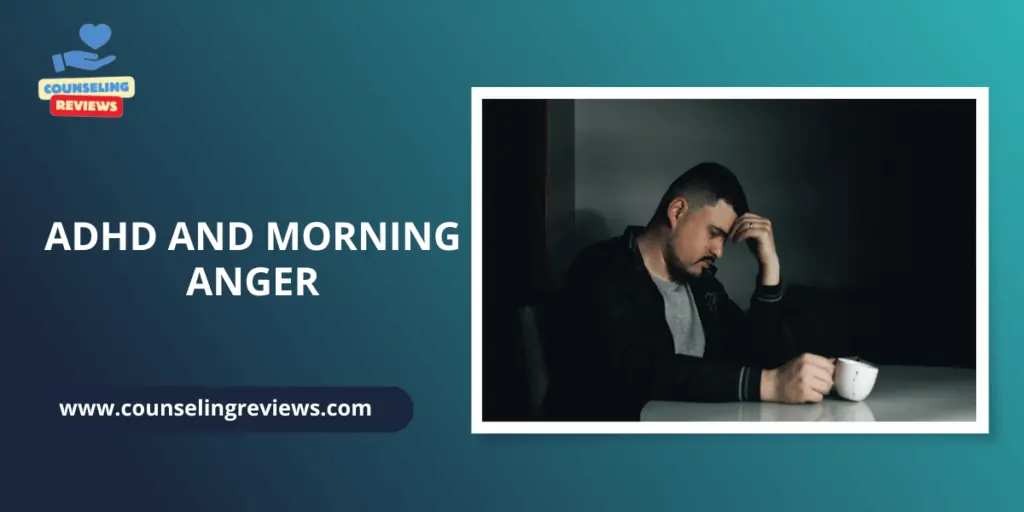Over the last few years, Attention Deficit Hyperactivity Disorder (ADHD) has become a widely spread diagnosis for individuals, both children and adults. ADHD usually presents as difficulties with focusing and having hyperactivity. While those with ADHD can only have one of those presentations, some individuals experience both the inattentiveness and the hyperactivity symptoms.
Individuals with children diagnosed with ADHD or who have the diagnosis themselves have been reporting increased irritability in the morning upon waking up from their night’s sleep. Many refer to this as “morning anger”. Experiencing this intense emotion at the start of the day can be annoying, but the good news is that it is manageable and can be decreased.
Possible Triggers for Morning Anger
With ADHD comes many symptoms that individuals learn to manage and regulate, either through the use of coping techniques, medication, or both. Morning anger is one of those symptoms. Another step to managing morning anger and other symptoms related to Attention Deficit Hyperactivity Disorder is recognizing triggers for the anger itself.
One of the most common triggers has to do with sleep. In an article by Jacqueline Sinfield, she reports that 75% of people with ADHD have problems sleeping. Whether this is related to not being able to fall asleep, stay asleep, or get restful sleep, it is known that this plays a big role in morning anger. If we think about this further, most humans get more agitated or irritated when they are running on less sleep than usual.
Studies also show that ADHD diagnoses can exist with other diagnoses such as anxiety and depression. The combination of these can lead to additional stress and feeling like there is so much to do from the moment that you wake up in the morning. A common symptom of ADHD is difficulty with task initiation. When this is met with the thought of having to do something and anxiety nagging away in the brain, it can lead to increased anger and raised cortisol, the stress hormone we all have in our bodies.
Coping Strategies for Managing Morning Anger
Finding ways to cope with any emotion is important for healthy mental health and wellbeing, and morning anger with ADHD is no different. A coping strategy is a tool that is utilized to help reduce unwanted emotions or thoughts, and there are a wide variety of tools that can be used to accomplish this goal.
Managing morning anger starts with identifying coping strategies that help you feel calm, less stressed, and move you toward a better mood. For anger specifically, coping skills that are effective will involve movement, as anger is a very energized emotion.
Below are some tips and strategies for managing morning anger with ADHD:
- Acknowledging the feeling of anger outloud or in a journal
- Creating mantras to remember that anger (or any emotion) does not last forever
- Progressive muscle relaxation, where the muscles in the body are tightened and then relaxed in correlation with the breath cycle
- Exercising first thing in the morning – starting the day with movement releases stress and tension that has built overnight
- Using a stress ball to squeeze when frustration hits harder
- Listening to calming music
- Finding moments of joy in the morning routine – a cup of coffee, walking the dog, reading a book, journaling, etc.
- Working on a to-do list that is reasonable and breaks down large tasks into smaller, more achievable ones
Incorporating Routines and Structure
Another lifestyle change that can have a positive impact is routine and structure. Creating and incorporating both a routine and a structure to a daily schedule is key to managing symptoms of ADHD in general, and furthermore the anger that can come along with it. Each person will have a different routine that works best for them, and the key is sticking to this daily to the point where it becomes a habit.
For many individuals with ADHD and morning anger, it is beneficial to create some sort of schedule for their day that can be consistent throughout the week. This may be waking up at the same time every day and spending 15 minutes in bed scrolling on the phone. Then a routine may incorporate something like coffee or tea and a light morning workout before heading into the office or working from home.
While many of our days are not completely the same from sun up to sun down, structuring time for various activities and responsibilities is helpful. If a lunch break changes time throughout the week, structuring the day means allowing 1 hour for lunch, no matter what time you take it. Structuring a morning workout at a specific time keeps the day on time, but also allows for flexibility of what type of workout is completed.
For individuals with morning anger and ADHD, ensuring routine time for enjoyable activities is another important strategy to assist in conquering the symptoms. Adding a routine date night or night with friends into the structure of days and weeks can be helpful to switch up the day-to-day responsibilities that come with being an adult or student.
Professional Guidance for ADHD-related Anger
Attention Deficit Hyperactivity Disorder has become more researched and accepted in today’s society, making it one of the most common mental health diagnoses that is being seen in modern-day clinical work. While individuals are being diagnosed with it younger and younger, there are many resources available to help parents and adults manage the symptoms, including the anger that comes along with ADHD.
Professional guidance for these symptoms may include seeking mental health therapy to process thoughts, emotions, and behaviors. These types of therapy sessions can be completed in person or through a telehealth platform, making them more accessible than ever. In addition to individual therapy, some people prefer to attend group therapy sessions to hear the stories of others who are going through similar experiences.
Parenting classes and workshops can be a vital tool in helping parents manage their child’s ADHD symptoms and anger. These are unique opportunities where groups of parents can learn appropriate communication skills and coping mechanisms both for themselves and their children.
Some professionals may also recommend medication to help manage the symptoms of ADHD. While starting medication is a personal choice for each individual and family, there can be value in adding a pharmaceutical to the daily routine to help balance out the brain chemicals. Many doctors and psychiatrists are happy to share education and details on the various medications out there to help individuals make the most informed decisions.
If you are experiencing symptoms of ADHD or have been diagnosed, there are a plethora of resources to help you or a loved one manage symptoms and be the best version of yourself, morning anger and all!





